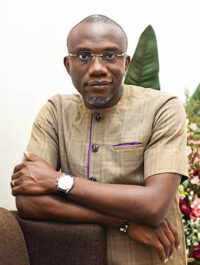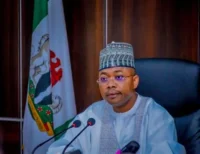By Merit Ibe
Stakeholders in the sustainability and environmental, social and governance (ESG) sector have highlighted the importance of ESG-aligned infrastructure and stakeholder collaboration to achieve climate-smart industrial development in Africa.
In the face of accelerating climate risk, evolving financial priorities, and a generational shift toward values-driven leadership, they called for action between the government and private sector that would serve as a blueprint for inclusive growth, corporate accountability, responsible governance and long-term resilience in the face of economic uncertainty.
This requires informed leadership and innovative solutions amongst top professionals, policymakers and thought leaders.
The stakeholders spoke at the Financial Institutions Training Centre (FITC) Sustainability and ESG Conference 2025, where they explored actionable strategies, best practices and partnerships to advance Nigeria’s ESG agenda and align with global standards while addressing local and regional challenges.
They highlighted the urgent need for integrating ESG principles into Nigeria’s economic framework to drive inclusive and resilient growth.
Managing Director/CEO of FITC, Dr Chizor Malize, set the tone in her welcome address, describing the conference as an opportunity to activate “a movement”.
She emphasized that ESG practices are now central to economic competitiveness and institutional resilience. Citing research from McKinsey & Co and the UN Global Compact, Malize noted that organisations with strong ESG frameworks enjoy lower capital costs and outperform peers during a crisis.
“The sustainability and global prosperity we aspire to is not a future event but a present imperative. It begins here. It begins now. It begins with all of us,” she asserted, urging stakeholders to move beyond dialogue to actionable strategies.
She underscored the urgency of integrating ESG into the fabric of economic competitiveness and national transformation, noting that “sustainability and ESG are no longer peripheral disciplines, but central levers of economic competitiveness, institutional resilience and national transformation”.
Deputy Governor of the Central Bank of Nigeria (CBN), Philip Ikeazor, underscored the financial sector’s pivotal role in advancing sustainability. He highlighted the revised Nigerian Sustainable Banking Principles (NSBPs), which now include climate risk mitigation.
“Climate inaction could cost Nigeria up to $460 billion,” Ikeazor warned, referencing World Bank data.
He outlined CBN-led initiatives such as green financing for renewable energy projects and internal measures like reducing the bank’s carbon footprint through operational efficiencies.
Lagos State Commissioner for Environment and Water Resources, Tokunbo Wahab, drew attention to the social dimension of ESG.
Reflecting on his experience in public service, Wahab advocated for policies that address youth unemployment, poverty and educational reform as critical levers for sustainable development.
“Sustainable progress is only possible when social inclusion and human capital development are prioritised alongside environmental stewardship and sound governance,” he said.
He showcased the state’s pioneering efforts in sustainability. From the Blue Box Recycling Programme to the Climate Action Plan targeting net-zero emissions by 2050, Wahab demonstrated how Lagos was turning environmental challenges into economic opportunities.
“Waste is no longer a problem but an economic resource with the potential to drive innovation and livelihoods,” he said, highlighting innovations like the Ikosi Biogas Project, which converts organic waste into biogas.
The conference had three plenary sessions that examined the theme with deeper insights.
The first plenary session was on the topic “Green is the New Gold: Harnessing ESG Innovation for Scalable Business Growth.”
The second plenary session was on “One Planet, One Economy: Collaborative Pathways to Inclusive and Sustainable Growth” while the third was on “Building a Sustainable Future: Governance, Innovation, and Inclusive Development for Africa’s Next Generation”.
The day’s plenaries also tackled the hard questions, offering down-to-earth insights into ESG integration at the operational level, tackling the dilemma around measurement, and sharing practical information on how ESG is funded and who leads it.
Blended finance and patient capital emerged as a critical theme. Many social enterprises and climate-focused startups remain locked out of traditional capital markets — not due to lack of impact, but due to outdated risk models. The solution? Reform capital systems to incentivize long-term value. ESG-aligned businesses need not just grants, but access to commercial capital with development-aligned metrics.
Data credibility and transparency also dominated discussions. As pressure grows for ESG disclosures, small and mid-sized enterprises — especially in Africa — risk being left behind due to lack of standardized tools. Panelists called for regionally relevant ESG reporting frameworks that lower the barrier to entry while upholding investor-grade integrity.
At the boardroom level, speakers emphasized that governance must evolve beyond tokenism. ESG cannot be relegated to CSR departments — it must shape how boards are composed, how risks are assessed, and how performance is measured. Gender equity, in particular, was cited as a growth driver, not just a fairness metric.
Finally, capacity building was identified as both a challenge and a solution. Africa must develop its own pipeline of ESG-literate professionals — auditors, policymakers, risk managers, investment analysts, and technologists — to steward this agenda at scale. That means retooling educational curricula, building mentorship networks, and funding specialized research.
Nothing illustrated Africa’s ESG potential more than the showcase of startups turning sustainability into strategy. One standout was Switch Recycling Innovations, a Nigerian social enterprise converting plastic waste into digital value — and helping underserved communities pay for education and healthcare using recyclables.
They have created over 2,800 digital wallets — just by helping people turn waste into wealth. This is an effective ESG you can touch. ESG that works.
Other featured ventures included agritech firms leveraging solar-powered storage to reduce food waste, and fintech startups offering climate insurance to smallholder farmers. These were not theoretical models. They were proof of the concept that ESG, when rooted in local problem-solving, delivers real social and economic returns.
Ms. Abimbola Agbejule, a seasoned sustainability expert, delivered an illuminating breakdown of ESG fundamentals, bridging abstract principles with real-world examples. She emphasized that individual actions matter—reusing plastics, switching to energy-efficient appliances, and embracing clean energy all contribute to a healthier planet. Corporates, meanwhile, must evaluate how their materials, operations, and waste impact environmental sustainability.
Agbejule reinforced that ESG is not an abstract buzzword but a collective responsibility spanning individuals, corporates, and public institutions.


















Leave a comment